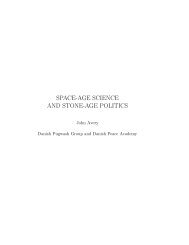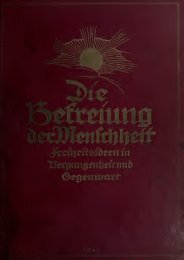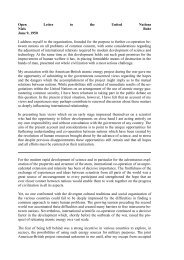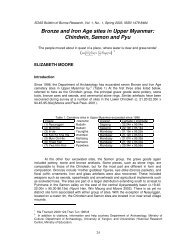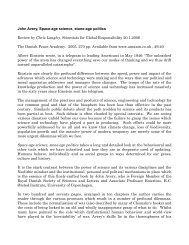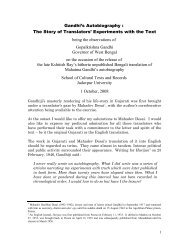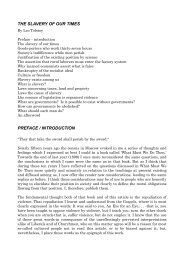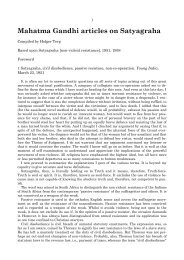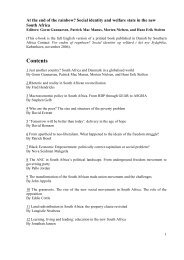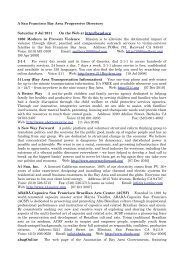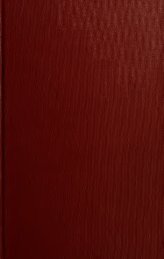Untitled
Untitled
Untitled
Create successful ePaper yourself
Turn your PDF publications into a flip-book with our unique Google optimized e-Paper software.
6 U. S. AND EXPANSION OF LAW BETWEEN NATIONS<br />
During the middle ages it was considered perfectly proper<br />
for one feudal potentate to allow another feudal prince to march<br />
his troops across the territory<br />
of the former lord in order to<br />
attack a third prince and his possessions, without the sovereign<br />
whose lands were used as a highway for the purposes of the<br />
attack being considered involved in the struggle in any way.<br />
The belligerents were merely making use of the public highways.<br />
As the feudal holdings were slowly consolidated into the<br />
European powers, more or less roughly in several instances upon<br />
the basis of nationality, questions gradually grew out of the<br />
political policy of the newly forming states, while at the same<br />
time the questions that related to the conduct of individual lords<br />
or nobles became of less and less importance. As the former<br />
and newer class of questions gained in prominence with the<br />
gradual change from the feudal system to the newer idea of<br />
centralized monarchies as the basis of the political divisions of<br />
Europe, the questions relating to the conduct of individuals became<br />
more and more insignificant and dropped gradually into<br />
the background. But the idea of one potentate preserving what<br />
is meant today by neutrality when others were engaged in war,<br />
was practically not understood until Vattel's time; and even he<br />
did not state it with all the fullness that the word neutrality<br />
means today as a term of international law.<br />
Grotius in his immortal work, De Jure Belli ac Pacis, published<br />
in 1625, said, according to Westlake's rendering, that<br />
"the duty of those who keep aloof from a war is to do nothing by<br />
which the one whose cause is bad may be strengthened, or the movements<br />
of him who is engaged in a just war may be impeded, but in<br />
a doubtful case to treat the two parties equally in allowing passage,<br />
in furnishing supplies to their armies, and in abstaining from the<br />
relief of besieged forces." 7<br />
Thus in the absence of a benevolent neutrality which the father<br />
of the Law of Nations urged at the end of the first quarter of<br />
the seventeenth century, he taught equality of treatment for<br />
both belligerents. And Bynkershoek in his Quaestiones Juris<br />
T<br />
Liber 3, c. 17, 3.



